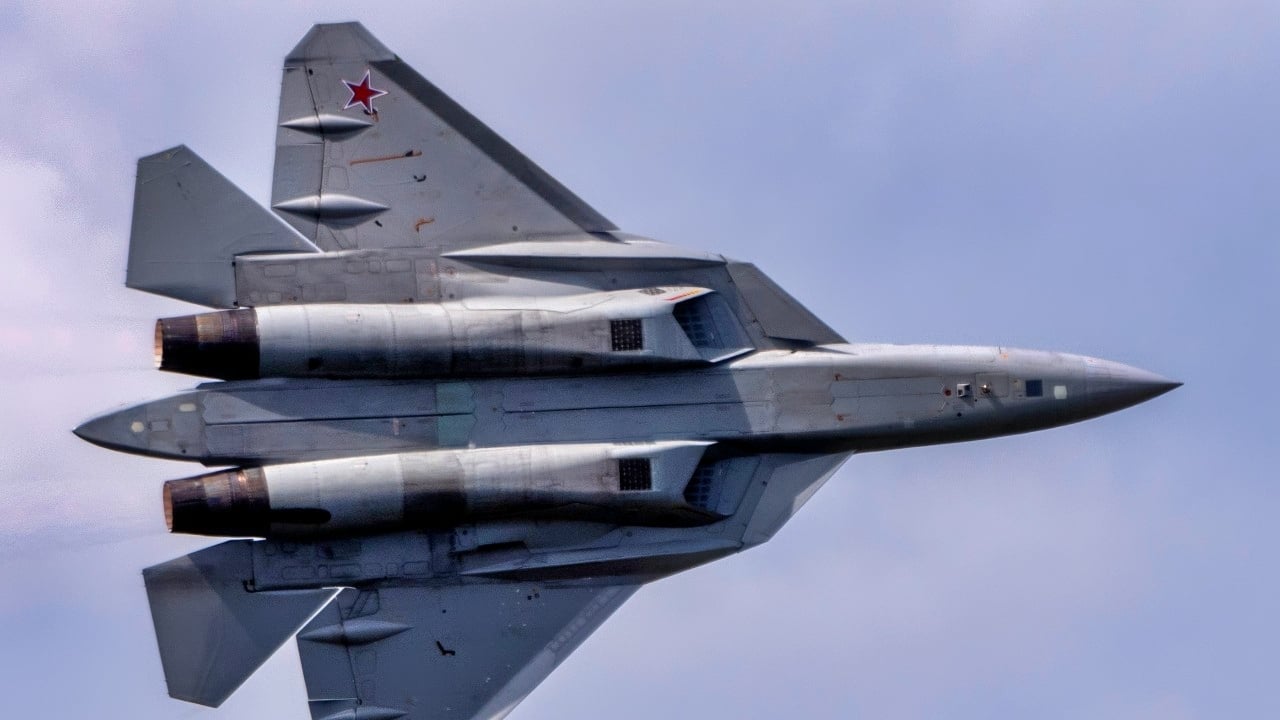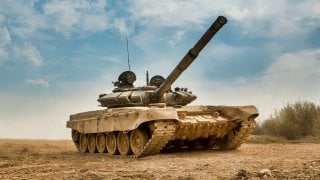The American People Control Russia’s Military Future
The real hope to change Russia’s course comes from outside Russia. The direction the United States takes will determine which of the two futures becomes reality. With the balance on a knife’s edge, each vote will help to determine not only who leads the United States in 2025 and beyond. It will also determine the strength of Russia’s military and the nature of the threat that it poses to the world.
Russia, the supposed military superpower, now depends on Iranian drones, North Korean missiles, and World War II-era Soviet equipment to fight its war on Ukraine. It has lost more than 700,000 soldiers, 100,000 armored vehicles and artillery systems, and large portions of its navy and air force to a Ukraine it expected to conquer in two weeks.

Almost every sector of Russia’s military has sustained massive personnel and equipment losses in this unmitigated disaster.
But the most devastating loss, which should be of greatest concern to Putin, is that Russia no longer controls its future or that of its military. It is the United States and the decisions of a few thousand American citizens who will decide that future.
How Americans vote in November will determine more than just the trajectory of the United States. Yes, Ukraine’s future hinges on this election, but the flip side of this has drawn little attention. Our votes on November 5, 2024, will also shape Russia’s future and that of its military, and in turn the threat Russia poses to democracy and security.
Above all, the future of our alliances is at stake. The coalition that the United States rallied against Russia’s aggression was a diplomatic triumph. The Ukraine Defense Contact Group of more than fifty states has remained steadfast in arming and supporting Ukraine. This was anything but predictable.
The election of Donald Trump in 2016 made American foreign policy erratic and unpredictable, causing lasting damage to America’s ability to lead. Putin’s expectation of easy victory in Ukraine hinged on the diminished United States leadership and weakened NATO alliance. Trust in the United States as a reliable partner was exceedingly low, a direct result of Putin’s agenda to weaken and divide the West, undermine the democracies, and allow Russia to exploit the turbulence to its advantage.
Because Trump remained politically viable after his 2020 defeat, and America’s future role uncertain, Putin reasonably expected no significant or sustained opposition from the West to his designs on Ukraine and beyond. The full story has yet to be told of just how President Biden was able, seemingly overnight, to re-forge and strengthen the alliance. He rebuilt, expanded, and has held it together through this long and devastating war, restored trust in American leadership, and enabled Ukraine a chance to repel the aggressors, all to Putin’s chagrin.
With the looming possibility of another Trump presidency, America’s continued leadership is far from certain. The months-long congressional delay on renewed aid to Ukraine demonstrated the costs. When Ukraine loses the ability to destroy Russian missiles and launchers, Russia advances. It obliterates apartment buildings as it did on September 4, killing Yevgenia Bazylevych and her three daughters while terrifying women and children in neighboring buildings who expected not to survive the night.
This is what hangs in the balance on election day. Russia and its military face two possible futures. Under a Harris presidency, the United States will continue to lead as isolationist tendencies recede. International opposition to Russia’s dictator and his attacks on democracy will strengthen, with confidence in America’s reliability in the future restored. Our allies will breathe a sigh of relief. Russia would face extended sanctions with more aggressive enforcement, denying it access to the technology needed to rearm.
With American engagement assured, China would likely reorient back toward integration with the global economy. Putin will lose any hope of replacing the democracies with friendly authoritarian leaders, the Russian military will remain in tatters, and with any ability to proclaim “victory” gone, Putin will find it increasingly difficult to justify his regime.
A second Trump administration, by contrast, will bring a distancing or outright United States withdrawal from NATO and abdication of a leadership role. An independent Ukraine would vanish, and commitment to democratic values and institutions both here and around the world would falter as far-right authoritarianism and dictatorship advance. Russia’s military menace will grow as it assumes an ascendant role in the world, with no barriers remaining to rearming and expanding. The Kremlin understands that a Republican victory will mean its victory, which is why it continues to interfere in our elections on behalf of Trump and his Republican allies.
Any hopes that internal opposition to the war will bring change in Russia are long since dashed. Brutal and murderous repression of political opposition, incessant censorship, and overbearing state propaganda have destroyed all signs of opposition from the Russian people. If the catastrophic human losses this war in Ukraine has caused have not already fueled an uprising, it is a fantasy to expect one to arise now.
The real hope to change Russia’s course comes from outside Russia. The direction the United States takes will determine which of the two futures becomes reality. With the balance on a knife’s edge, each vote will help to determine not only who leads the United States in 2025 and beyond. It will also determine the strength of Russia’s military and the nature of the threat that it poses to the world.
About the Author
Joel Ostrow is a Professor of Political Science at Benedictine University, the author of The Consolidation of Dictatorship in Russia: An Inside View of the Demise of Democracy, and a frequent media analyst on Russian politics and international security. He is also a co-host of The World Discord Podcast. The views expressed here are strictly his own.
Image Credit: Creative Commons and/or Shutterstock.


